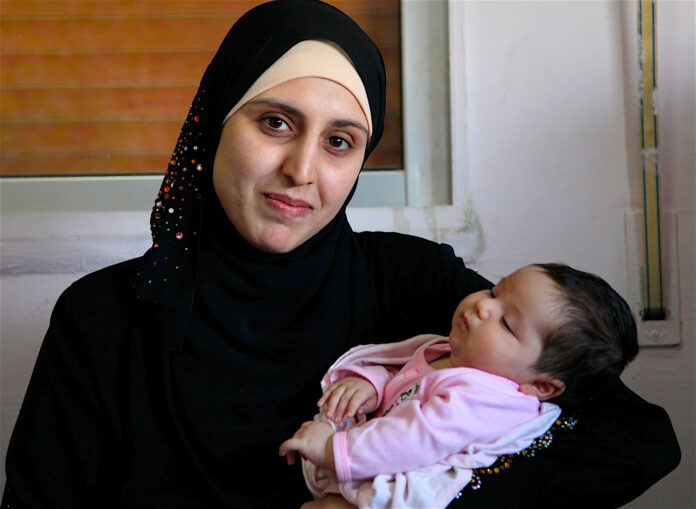
What possesses Americans to be so close-minded and arrogant as to believe that we could never be in this same situation?
Syria: a land so full of rich culture and civilization, a land that welcomingly took in refugees from Europe following the Armenian genocide and the Jewish holocaust; a land of historically accepting people. Fast forward to 2016, and the world’s largest refugee crisis since World War II is getting bloodier and more devastating by the hour. As an international community, we have failed the Syrian people. The least we can do is own up to our lack of humanity.
Following Tunisia’s spark of outrage that started the Arab Spring, those who lived under tyrants like Muammar el-Qaddafi, Hosni Mubarak, and Bashar al-Assad also took to the streets, to demand what every human longs for: freedom, equality, and justice. Each country’s post-Arab Spring outcome is distinct, but Syria’s has been the most difficult to watch. A 21st century civil war between government and rebel forces, with ISIS’ terror added into the equation, has led to Syria seeing devastation on many different levels. According to the United Nations High Commission for Refugees, more than 470,000 Syrians have been killed, 4.7 million are registered as refugees and an increasing number of the country’s 8 million citizens are displaced inside the country.
Let’s not forget the role of this crisis in the U.S. election campaign. Onetime candidate Ben Carson’s appalling comparison of Syrian refugees to dogs; Sen. Ted Cruz’s call for a “religious test” (honestly, how would that even work?) to bar Muslim refugees from entering the country; and then-presidential candidate Donald Trump’s proposed ban on Muslim entry all confirm the undying xenophobic views of modern American politics.
An overwhelming number of Republicans who ran for the 2016 presidential bid exploited the Syrian refugee crisis to further their own political agendas. Constant fear-mongering, usage of Islamophobic statements, and the outright dehumanization of a children and women-majority refugee crisis have plagued America’s media outlets. As political giants showed their true colors by immorally attacking Syrian refugees, the viral photo of the drowned Syrian Kurdish child Aylan Kurdi shocked the world. Pictured was the body of a 3-year-old Syrian boy washed up on the shores of Turkey, one of the hundreds of thousands of refugees resorting to dangerous sea crossings to escape their war-stricken homeland. This heart-breaking image showed exactly what this current-day refugee crisis is: a fight to survive.
Many U.S. governors have delivered unapologetically prejudiced narratives to support their calls to ban Syrian refugees from seeking asylum in their states. New Jersey Gov. Chris Christie’s harsh words have reverberated through various news outlets, arguing that Syrian refugees should not be allowed into New Jersey — not even “orphans under age 5.” This dangerous rhetoric villainizes children, many of whom have lost their parents, and have nowhere to go. Technically, Christie cannot keep refugees out of New Jersey, once they are in the country. However, in April 2016, he announced that the state would withdraw from the refugee resettlement program, and withhold state resources or assistance for those in need (leaving the responsibility to nonprofit organizations). Yet Syrians have resettled in the Garden State as early as 2013, fleeing Assad’s rule right before the crisis escalated to a mind-boggling volume.
Most Syrian refugees in New Jersey have been living in Elizabeth and Jersey City. Though various mosques and churches have supported them through clothing drives and fundraisers, many newcomers are still struggling both financially and emotionally.
In an interview with National Public Radio, Syrian-American Kenan Chater and his 8-year-old son Mahmoun discussed the impending arrival of other family members at Newark International Airport.
War interrupted the children’s education, and Kenan Chater is now anxious to help his family — who had first fled to Thailand — in any way he can.
Kenan planned to tell his arriving cousin that the United States would be a good place to settle.
“It’s a nice place. Everybody’s kind. There’s no war,” he told NPR. “There might be a place where you can go to school. He only went to school for first grade. That’s it,” he said of his son.
Mahmoun said his cousin is lucky to be alive, after witnessing two bombings at his school. The shock and horror that many of the young refugees faced while in school, whether losing their best friends or teachers, may have a triggering impact when they finally get back into the classroom. Schools are usually used as safe havens during times of war, but in Syria, many schools have been subject to cowardly and ruthless attacks.
What makes Americans think that this situation is exclusively a “Muslim” problem (Syria is a country made up of Christians, Jews, Druze, and many more religious groups) or an “Arab” problem? By definition, a refugee is “a person who has been forced to leave their country in order to escape war, persecution, or natural disaster.”
Syria was once known for its prestigious universities (some of the first in the world), which produced many of the planet’s best doctors, lawyers, and educators. What possesses the American people to be so close-minded and arrogant as to believe that we could never be in this situation? Have we really become so numb that we cannot sympathize with exhausted mothers placing their weeping children into faulty life jackets and frail boats?
The intensive vetting process to enter the United States as a refugee takes at least 18 to 24 months, with a 50 percent acceptance rate, half of them children. Thousands of Syrian refugees have quietly settled in America, with the 10,000th arriving in August 2016. It’s fair to say that most Americans are not even aware of them, so small is this number in comparison to the millions of refugees settling in Jordan, Lebanon, Turkey and Germany. The real dangers Americans actually face lie in other atrocities, such as the mass shootings perpetrated by U.S.-born citizens, most of them white males.
Refugees are not dangerous, and it is time that we put an end to the delusional hysteria. If one day we found ourselves fleeing the country we call home, wouldn’t we want to be taken in by those who pride themselves on being from a land of “liberty and justice for all?”


